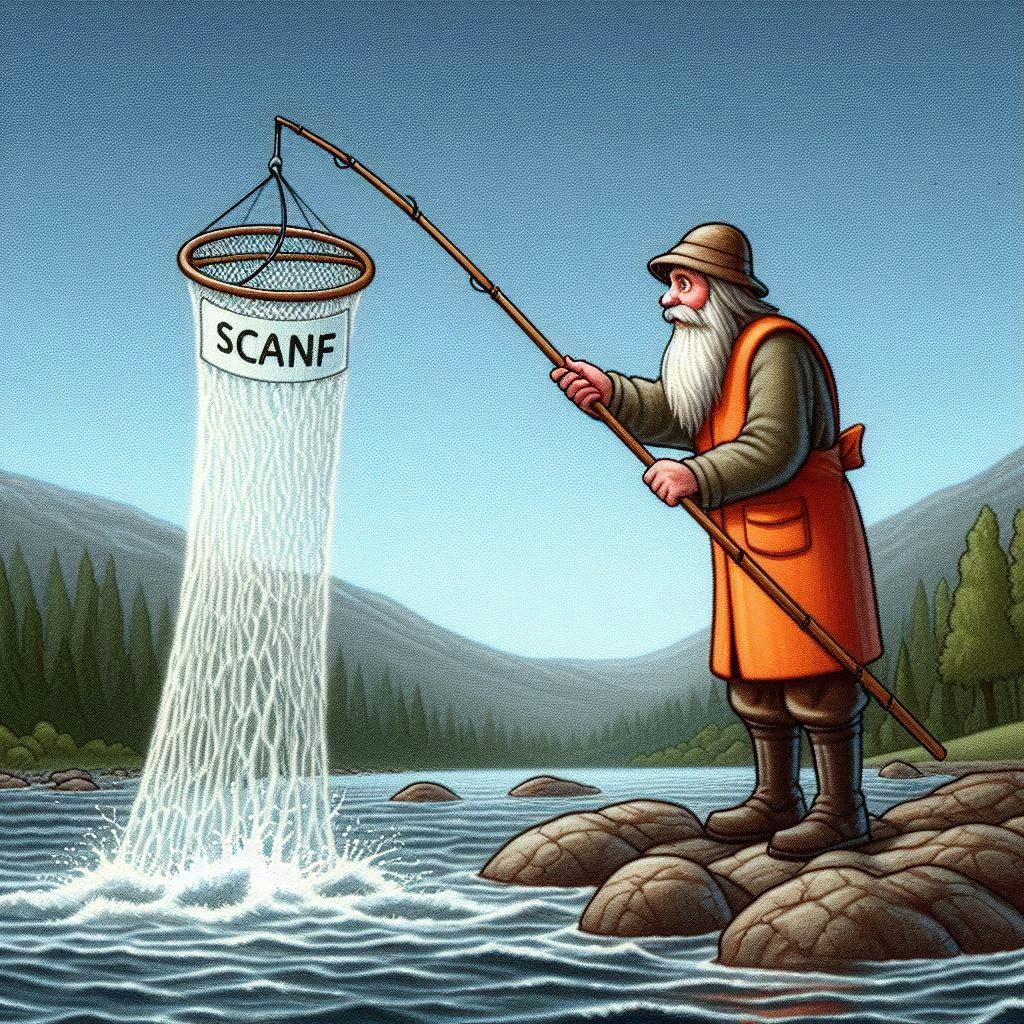Why using scanf() instead of fflush()
Absolutely! Imagine the data flowing through your computer like a rushing river. This river has hidden pockets called buffers, where information rests for a moment before moving on.
scanf() is like a fisherman standing on the riverbank, casting a net into the current.

He waits patiently for tasty data chunks (user input) to get caught in the net. Once his net is full, he pulls it in, storing the delicious information in his basket (variables).
Now, fflush() is like a helpful friend downstream. As the data chunks float by, sometimes they get stuck in shallow pools (the buffer).

Your friend jumps in, scoops them up with a shovel, and sends them tumbling back into the main current. This ensures they reach their destination (the screen or file) swiftly, without getting stranded in those stagnant buffers.
So, while scanf() fishes for new data upstream, fflush() acts as a downstream caretaker, making sure the information already in the water keeps flowing smoothly. They work together to keep the river of data moving and ensure everything arrives promptly where it needs to be.